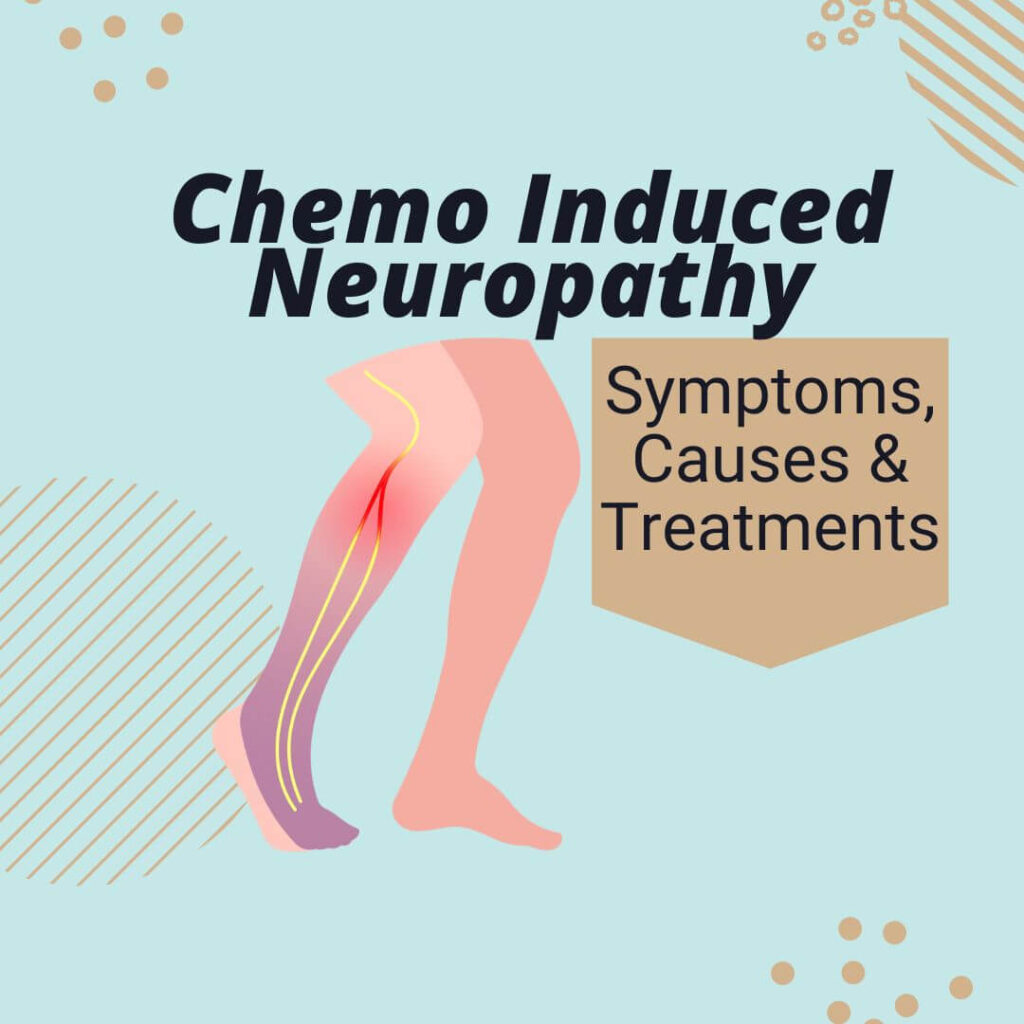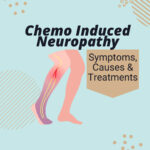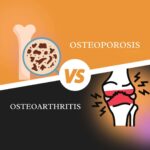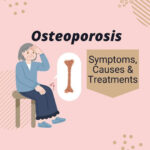Chemotherapy-induced peripheral neuropathy (CIPN) is a common side effect of chemotherapy. In this article we discover effective chemo neuropathy treatment options to alleviate discomfort and improve quality of life. From medications to lifestyle adjustments, explore diverse options tailored to address your specific needs. Embrace holistic approaches and medical interventions to manage symptoms and enhance well-being.

Key Takeaways
- Implement lifestyle changes such as maintaining a balanced diet and incorporating regular exercise to help manage neuropathy symptoms.
- A holistic treatment plan should include supplements, physical therapy, a healthy diet and more to effectively alleviate neuropathy discomfort.
- Consider medications prescribed by your doctor for relief from neuropathy symptoms, but be aware of potential side effects.
Understanding Neuropathy in Chemotherapy
Types of Neuropathy
Chemotherapy-induced peripheral neuropathy (CIPN) is a common side effect of chemotherapy. It affects the nerves that control sensation, movement, and organ function. There are mainly two types of CIPN: sensory neuropathy and motor neuropathy.
Sensory neuropathy causes symptoms like numbness, tingling, burning pain, or sensitivity to cold or touch. On the other hand, motor neuropathy can cause weakness, muscle cramps, difficulty with fine motor skills, and loss of balance.
For more detailed information on neuropathy in general, make sure to read our article Neuropathy in Elderly: Symptoms, Causes and Treatment Options.
Impact on Cancer Patients
Cancer patients undergoing chemotherapy often experience challenges due to CIPN. The symptoms can range from mild discomfort to severe pain and may affect daily activities such as walking, buttoning clothes, or holding objects.
The impact goes beyond physical discomfort; it can also lead to emotional distress and decreased quality of life. Patients may feel frustrated by the limitations imposed by neuropathy and may struggle with anxiety or depression as a result.
Prevalence Statistics
Statistics show that CIPN affects a significant number of cancer patients. Approximately 30% to 40% of patients receiving chemotherapy develop CIPN during treatment. Moreover, the prevalence increases up to 68% in the months following chemotherapy completion.
Identifying Risk Factors
Common Risk Factors
- Chemotherapy drugs: Certain medications like platinum-based drugs such as cisplatin and oxaliplatin, as well as taxanes increase the risk of chemo neuropathy.
- Dosage: Higher doses or prolonged exposure to chemotherapy can elevate the chances of developing neuropathy.
Chemotherapy-induced neuropathy can be influenced by several factors. Age is a significant risk factor, with older individuals more prone to experiencing nerve damage. Moreover, individuals with existing health conditions such as diabetes are at a higher risk of developing neuropathy during chemotherapy.
Preventing Neuropathy Development
Monitoring Symptoms
When you receive a diagnosis of peripheral neuropathy, the disease can be managed by monitoring neuropathy symptoms closely during chemotherapy sessions. Regularly checking for tingling sensations or numbness in the hands and feet is crucial.
Chemotherapy patients should promptly report any nervous system changes to their healthcare providers. Early intervention plays a vital role in preventing severe nerve damage.
Lifestyle Changes
Making lifestyle changes such as engaging in regular exercise, maintaining a balanced diet, and avoiding alcohol can help reduce the risk of developing neuropathy during chemotherapy. Exercise helps improve blood circulation, which is beneficial for nerve health.
Patients undergoing chemotherapy should prioritize their overall well-being by getting adequate rest and managing stress levels. These simple adjustments can significantly contribute to preventing neuropathy.
Red Light Therapy
A newer approach to preventing and managing neuropathy is through red light therapy, also known as low-level laser therapy. This non-invasive treatment involves exposing affected areas to low levels of red or near-infrared light.
Red light therapy has shown promising results in reducing pain and inflammation associated with peripheral neuropathy. It has helped many patients as it stimulates cellular repair and regeneration, aiding in nerve function recovery.
Read this article by CuraYou for an analysis of the scientific research on the benefits of red light therapy as a chemo neuropathy treatment.
Medications for Neuropathy Relief
Common Medications
Neuropathy management often involves prescription medications to alleviate symptoms. Common drugs include anticonvulsants like gabapentin and pregabalin, which help manage nerve pain. Another class of medications are antidepressants such as amitriptyline and duloxetine, which can also provide relief.
Anticonvulsants like gabapentin work by stabilizing electrical activity in the brain that contributes to nerve pain. They are effective in reducing discomfort associated with neuropathy. On the other hand, antidepressants like duloxetine can help by altering brain chemicals involved in pain perception.
Effectiveness and Side Effects
These medications have shown varying degrees of effectiveness in managing neuropathy symptoms. While some individuals experience significant relief, others may not respond as well. It’s essential to consult a healthcare provider to determine the most suitable medication based on individual needs.
Despite their benefits, these medications can also cause side effects. Common side effects include dizziness, drowsiness, nausea, and constipation. It’s crucial to monitor any adverse reactions and report them promptly to a healthcare professional.
Alternative Therapies
In addition to prescription medications, there are alternative therapies and remedies that people may want to try to complement traditional treatment approaches for neuropathy relief.
Acupuncture, for instance, has been found to help reduce pain and improve nerve function in some individuals.
Moreover, physical therapy focusing on strengthening exercises can aid in enhancing mobility and reducing discomfort.
Finally, red light therapy has been shown to reduce and repair nerve damage and provide neuropathic pain relief.
Lifestyle Changes for Managing Symptoms
Exercise
Regular exercise can help alleviate neuropathy symptoms by improving blood flow and reducing nerve pain. Activities like walking, swimming, or gentle yoga can be beneficial.
Engaging in physical activities releases endorphins that act as natural painkillers, providing relief from neuropathic pain. Incorporating exercise into your daily routine can also improve balance and coordination, reducing the risk of falls associated with neuropathy.
Stress Management
Stress can exacerbate neuropathy symptoms, making it essential to incorporate stress management techniques into your daily routine. Meditation, deep breathing exercises, or engaging in hobbies can help reduce stress levels.
By managing stress effectively, you can lower inflammation levels in the body, which may contribute to reducing neuropathic pain.
Balanced Diet
Maintaining a balanced diet rich in vitamins and minerals is crucial for managing neuropathy symptoms. Foods high in antioxidants like fruits, vegetables, and whole grains can help reduce inflammation and oxidative stress.
Incorporating Omega-3 fatty acids found in fish, flaxseeds, and walnuts can provide anti-inflammatory benefits that may alleviate nerve pain. Avoiding excessive sugar intake and processed foods eases neuropathy symptoms.
Recent studies show that the gut microbiome regulates pain in the peripheral and central nervous system. High microbial diversity significantly lowers risks for chronic conditions and neurological disorders. A healthy and diverse diet has been shown to control blood sugar, reduce inflammation and provide neuroprotective effects.
Exercise and Diet for Neuropathy
Suitable Exercises
Neuropathy patients can benefit from low-impact exercises like walking, swimming, or cycling. These activities help improve circulation and nerve function without causing further damage. Balance exercises, such as tai chi or yoga, can also enhance stability and reduce the risk of falls.
Regular physical activity is crucial for neuropathy patients as it increases blood flow to the nerves, promoting healing and reducing pain. Strengthening exercises, focusing on core muscles and lower body strength, can improve overall mobility and reduce discomfort associated with neuropathy.
Benefits of Physical Activity
Engaging in regular exercise not only improves physical health but also has significant benefits for neuropathy patients. Physical activity boosts endorphin levels, helping to alleviate pain and improve mood. It also enhances nerve function by promoting the growth of new blood vessels to nourish damaged nerves.
Moreover, exercise plays a vital role in maintaining a healthy weight, which is essential for managing neuropathy symptoms. By reducing excess weight, individuals can alleviate pressure on nerves and minimize discomfort associated with the condition.
Dietary Recommendations
A well-balanced diet rich in essential nutrients is crucial for supporting nerve health in neuropathy patients. Consuming foods high in vitamins B12, B6, and E can help maintain nerve function and reduce inflammation. Omega-3 fatty acids found in fish like salmon or flaxseeds are beneficial for nerve health.
Incorporating antioxidant-rich foods such as berries, nuts, and leafy greens can help protect nerves from oxidative stress and damage. Avoiding processed foods high in sugar and unhealthy fats is essential to prevent exacerbating neuropathy symptoms.
Importance of Gut Microbiome
The gut microbiome plays a significant role in influencing chronic conditions like neuropathy. A diverse range of beneficial bacteria in the gut supports immune function and reduces inflammation throughout the body. Probiotic-rich foods like yogurt or kefir can help maintain a healthy gut microbiome.
Maintaining a balanced gut flora is essential for individuals with neuropathy as it can impact overall health and immune function. By prioritizing fiber-rich foods such as whole grains, fruits, and vegetables, individuals can support gut health and potentially alleviate neuropathic symptoms.
Supplements and Topical Treatments
Supplements
- R-Alpha-lipoic acid: Known for its antioxidant properties, it may help reduce neuropathic pain as it helps in lowering blood sugar levels, and improving nerve function.
- Vitamin B: Specifically B-complex vitamins like B1, B6, and B12 can support nerve health by helping to maintain the covering on nerve endings.
- Acetyl-L-carnitine: This amino acid may improve nerve fiber regeneration. It raises energy levels, creates healthy nerve cells, and reduces pain.
- Benfotiamine is known to lower pain and inflammation levels and prevents cellular damage.
Supplements can play a crucial role in managing chemo neuropathy symptoms, as they are the building blocks for effective nerve repair. It is recommended to consult with a doctor or other health care provider for safety.
Navigating Doctor-Patient Discussions
Open Communication
Discussing symptoms and concerns openly with doctors is crucial for effective chemo neuropathy treatment. Patients should not hesitate to share any problems they are experiencing.
Effective communication helps doctors understand the symptoms patients are facing, such as tingling hands, fingers or feet, imbalance, or other discomforts. By being open about these issues, patients can receive appropriate support and treatment.
Shared Decision-Making
Involving patients in the decision-making process regarding their treatment plan is essential. Doctors should collaborate with cancer patients to determine the best course of action based on individual needs.
Shared decision-making empowers patients to actively participate in their care. It allows them to voice their preferences, concerns, and goals, leading to a more personalized and effective treatment approach.
Tips for Effective Communication
- Prepare a list of symptoms, questions, and concerns before doctor appointments.
- Be honest and detailed when describing symptoms, including their severity and impact on daily life.
- Ask about potential treatment options, including dose adjustments or alternative therapies.
- Seek clarification if any information provided by the doctor is unclear or confusing.
Closing Thoughts
In your journey to understand and manage chemotherapy-induced neuropathy, you’ve gained insights into its complexities, risk factors, prevention strategies, treatment options, and lifestyle adjustments.
Remember, nerve repair takes time and each step you take towards managing neuropathy brings you closer to improved quality of life and well-being. Your commitment to implementing these strategies can make a significant difference in how you cope with neuropathic symptoms.
Take charge of your neuropathy management by incorporating the knowledge and resources shared here into your daily routine. A proactive approach can lead to better symptom management and an enhanced overall quality of life.
Frequently Asked Questions
Can neuropathy from chemotherapy be prevented?
Chemotherapy-induced neuropathy can be prevented or minimized by managing risk factors, maintaining a healthy lifestyle, and discussing preventive measures with your healthcare provider. Early detection and prompt intervention are key in preventing neuropathy development.
How can medications help in relieving neuropathy symptoms?
Medications such as pain relievers, antidepressants, and anticonvulsants may help alleviate neuropathic pain and discomfort. Consult your healthcare provider to determine the most suitable medication based on your specific symptoms and medical history.
Are there lifestyle changes that can help manage neuropathy symptoms?
Making lifestyle adjustments like maintaining a balanced diet, exercising regularly, quitting smoking, moderating alcohol consumption, and practicing stress-reducing techniques can significantly improve neuropathy symptoms. These changes promote overall well-being and aid in symptom management.
What role do supplements play in treating chemotherapy-induced neuropathy?
Supplements like vitamin B12, alpha-lipoic acid, and acetyl-L-carnitine have shown promise in managing neuropathic symptoms.
- How To Improve Gut Microbiome – 26 May 2024
- Chemo neuropathy treatment: What to do? – 19 May 2024
- How to Prevent Osteoporosis: Effective Strategies & Simple Steps – 28 December 2023






Leave a Reply